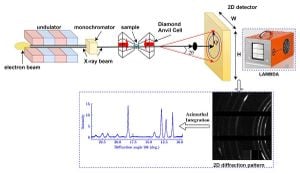A significant 5.3 magnitude earthquake struck South Africa's Northern Cape early on Sunday, shaking residents across multiple regions and raising awareness about the country’s vulnerability to seismic events. The earthquake, reported at 2:51 AM local time on December 22, 2024, was centered approximately 101 km west of the small town of Brandvlei. It was recorded by the U.S. Geological Survey and confirmed by the South African Council for Geoscience (CGS), which announced the quake was at a depth of 10 kilometers.
Residents as far away as Cape Town—about 400 km from the epicenter—reported feeling the tremors, with over 200 people logging their experiences on the United States Geological Survey’s website. A local farmer, Drienie Visser, recalled the moment it struck. “Our whole house shook and I thought it would fall apart. That was the worst earthquake we’ve ever had,” she exclaimed. Describing how she and her husband were jolted awake, she added it was unlike any previous tremors they had felt.
The CGS confirmed this was followed by several aftershocks, the largest of which registered at 2.9. Many residents reported similar experiences of fear and confusion as the ground quaked beneath them. Lettie Malan, another local farmer, said, “It was quite dramatic and was actually the worst one we have felt over here, I think because we are quite close to the epicenter.” After the initial shock, she and her husband were joined by guests who were also shaken awake by the intense tremors.
Professor Raymond Durrheim, a notable figure from the University of the Witwatersrand and former South African Research Chair, explained, “This region is known for swarms and clusters of seismic events.” He noted the CGS recorded ten aftershocks during the twelve hours following the main earthquake, indicating the heightened seismic activity, which historically has seen similar events occur intermittently.
While no immediate reports of injuries or significant property damage surfaced, CGS spokesperson Mahlatse Mononela labeled the quake as “unusual,” pointing out the relative seismic quietude of the Northern Cape until now. “Aftershocks are as a result of the ground trying to elastically resume a stable position after being displaced,” Mononela stated. Local authorities are expected to carry out assessments of potential impacts across the affected areas.
Several residents described the earthquake as being more severe than usual. The shaking was felt intensely across various towns, with reports logged from areas like Cape Town, Worcester, and even as far as Namibia. Residents recounted their fears during the quake, wondering if they would have to face disaster. “People started saying maybe the Earth is shaking because of the big rain that's coming because of the drought,” shared Visser. This highlights the local communities’ connection to the land and their hope for rain amid persistent agricultural challenges.
Fortunately, according to initial assessments conducted by local authorities, there have been no immediate hazards reported concerning infrastructure or agricultural needs, though concerns linger over the possible effects on boreholes and water supply systems.
The geological community will remain vigilant. The CGS confirmed it would continue to monitor the region for aftershocks, as historical data shows the potential for seismic activity to persist for prolonged periods following significant earthquakes. “It is unclear what the long-term geological implications are, and we will investigate the 5.3 magnitude main shock and provide details as they become available,” Mononela added.
This recent earthquake serves as a reminder of the importance of preparedness and awareness of natural disaster risks, even for countries like South Africa, which do not typically experience high-magnitude seismic events. Experts encourage continuous public engagement and education on earthquake readiness to mitigate potential impacts from future seismic activities.
With varying opinions from the local community and geological experts, this earthquake has not only highlighted the latent risks of seismic activity but has also prompted discussions on the need for more comprehensive geological surveys and public readiness initiatives. The recent quake may have been mild compared to earthquakes seen worldwide, yet for the residents of the Northern Cape, it was anything but trivial, leaving behind vivid memories and questions about the region's geological future.



